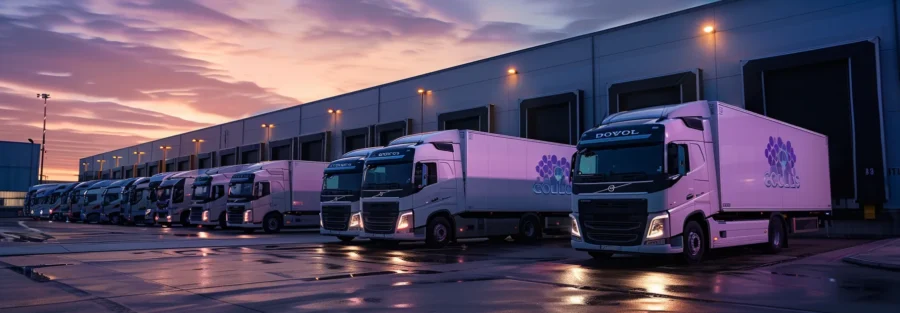What to Expect: Maintenance Costs for Chiller and Freezer Trucks in Dubai Explained
In Dubai’s fast-paced market, understanding the maintenance costs for chiller and freezer trucks is vital for businesses relying on temperature-sensitive goods. This article will cover key aspects of chiller truck costs, different types of trucks and their pricing, as well as the expenses associated with renting versus buying. Readers will gain insights into how to manage and optimize their cold chain logistics, ultimately reducing unnecessary expenses. Addressing the challenge of high maintenance costs, this guide aims to equip businesses with the knowledge needed to make informed decisions about their refrigerated transport needs.
Understand Chiller Truck Costs and Pricing Factors in Dubai
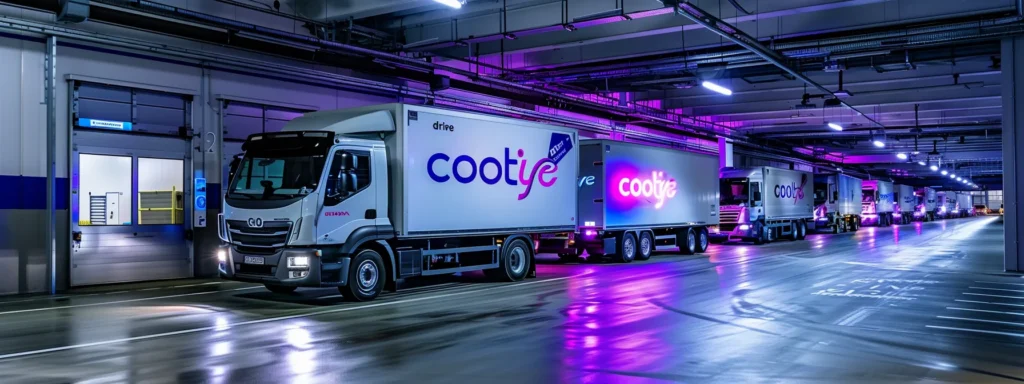
Several factors influence the costs associated with chiller trucks in Dubai, including rental versus purchase decisions, seasonal price fluctuations, maintenance and operational expenses, insurance requirements, and fuel costs. Understanding these elements is vital for businesses in the food safety sector, especially those dealing with perishables like dairy products. Additionally, compliance with the Roads and Transport Authority regulations plays a key role in managing waste and selecting the appropriate refrigerants.
Identify Main Factors Influencing Chiller Truck Costs
One of the primary factors influencing chiller truck costs is the method of ownership. Businesses must decide between renting a refrigerated van and purchasing one. Renting can provide flexibility and reduced financial burden, while ownership may lead to long-term cost savings, especially for companies with consistent logistics needs. Each option presents unique benefits that require careful evaluation based on operational goals.
Operational expenses, including maintenance and compliance with environmental regulations, significantly affect costs associated with refrigerated vehicles. Regular upkeep is essential to ensure reliability and efficiency, which directly impacts transportation quality. Additionally, adherence to regulation standards ensures that the vehicles operate with environmentally friendly practices, reducing potential fines and enhancing the company’s reputation in the market.
Fuel costs represent a considerable component of the overall expenses linked to chiller trucks. As the demand for sustainable practices increases, many firms are exploring efficiencies in fuel usage and alternative options that align with regulatory standards. Companies can save on fuel expenses through strategic route planning and optimizing load capacity, which not only lowers operational costs but also contributes to environmentally responsible logistics.
Compare Rental Versus Purchase Costs for Refrigerated Trucks
When comparing rental versus purchase costs for refrigerated trucks, businesses in the food industry must consider the initial price and long-term financial implications. Renting offers flexibility, allowing companies to scale their operations without significant upfront investment. This is particularly beneficial for businesses with fluctuating needs, as they can adjust their fleet based on current demand without committing to the high cost of purchasing a vehicle.
On the other hand, the purchase of a chiller truck can lead to improved operational efficiency over time. Owning a vehicle allows for customization tailored to specific business needs, such as optimizing engine performance for better fuel efficiency. Companies may find that investing in their own fleet reduces ongoing rental expenses, making ownership more economically viable for organizations with stable logistics requirements.
Additionally, maintenance costs are a key consideration when deciding between rental and purchase. Owning a chiller truck requires regular upkeep to ensure the engine runs efficiently, which can impact overall reliability and transportation quality. Businesses should weigh the expense of maintenance and compliance with regulations against the convenience of rental options, as a well-maintained truck not only ensures compliance but also preserves the integrity of temperature-sensitive goods during transport.
Explore Seasonal Price Variations for Chiller Truck Rentals
Seasonal fluctuations can significantly impact the costs associated with renting chiller trucks in Dubai. During peak periods, such as holidays or certain agricultural seasons, the demand for refrigerated transport increases. This heightened demand can subsequently raise rental prices, impacting businesses that rely on maintaining the quality of their goods. Therefore, understanding these cycles allows companies to plan logistics more effectively and manage costs efficiently.
In the summer months, temperatures in Dubai soar, leading to a rise in the risk of temperature-sensitive goods spoiling. As a result, the necessity for freezing and adequate refrigeration makes chiller truck rentals more sought after during this time. Businesses should be aware of this seasonal trend and consider booking their vehicles in advance to avoid inflated costs and ensure that they have access to the quality transportation required for their products.
A notable example can be seen in the Fujairah region, where certain goods, such as fresh seafood, require precise temperature control year-round. Rentals may experience price variations based on local demand and availability, thus affecting operational budgets. Companies should conduct thorough market assessments to better anticipate these costs, ensuring they maintain the quality of their offerings while controlling rental expenses throughout the year.
Analyze Maintenance and Operation Costs of Chiller Trucks
Maintenance costs for chiller trucks play a crucial role in the overall operational expenses for businesses involved in food delivery. Regular service is necessary to ensure that refrigeration systems function effectively, especially when transporting perishable items like meat. Failure to maintain the equipment can lead to spoilage, diminishing the shelf life of food products and impacting customer satisfaction.
Operational costs also encompass fuel consumption and tire wear, influenced by the routes taken during transport. For example, using optimized routes can enhance fuel efficiency, thus reducing expenses. Aside from fuel, businesses should account for the costs associated with repairing or replacing parts, which can vary significantly based on the truck’s age and usage frequency.
Companies should also be aware of compliance-related costs with safety and health regulations governing food transport. Ensuring that chiller trucks adhere to these requirements may involve additional expenditures, but it ultimately protects the integrity of temperature-sensitive goods. Investing in meticulous maintenance not only aids in meeting regulations but also bolsters a company’s reputation and ensures that customers consistently receive high-quality products.
Review Insurance Expenses for Chiller Truck Operations
Insurance expenses for chiller truck operations represent a crucial aspect of managing costs, particularly in the context of the cold chain. Businesses must consider factors such as the type of cargo being transported, including temperature-sensitive items like cream, when choosing an appropriate policy. A comprehensive insurance package is essential to protect against potential losses that could occur due to equipment failure or improper handling during transport.
In Dubai, the specific requirements outlined in a rental agreement can influence the insurance expenses associated with chiller trucks. Companies often must adhere to strict regulations to ensure the integrity of their cold chain logistics. Failure to maintain consistent temperature control can result in spoilage and financial loss, making it vital for businesses to secure the right coverage to mitigate these risks effectively.
Additionally, some logistics providers may offer bundled insurance options that include coverage for temperature fluctuations and cargo damage during transit. These packages are tailored for operators in the food and beverage sector, ensuring that businesses can manage the financial implications of unexpected incidents. By evaluating available insurance options, companies can safeguard their operations and maintain the quality of their products throughout the supply chain.
Examine Fuel Costs Associated With Chiller Truck Usage
Fuel costs for chiller trucks play a significant role in the overall expenses associated with transporting perishables in Dubai. As demand for chilled logistics increases, particularly in the warm months, understanding these costs becomes essential for businesses operating within the supply chain, especially those in Ajman. Companies must consider fuel efficiency and consumption rates to minimize financial impacts while ensuring reliable service.
Strategic route planning can greatly influence fuel usage and help control costs when transporting temperature-sensitive goods. Efficient road solutions not only lower fuel expenses but also enhance delivery timelines, mitigating the potential for emergency situations where goods may spoil due to delays. Businesses involved in food and beverage logistics must prioritize optimizing their operations to maintain profitability and meet consumer expectations.
Moreover, the choice of vehicle and maintenance practices directly affect fuel costs. Regular upkeep of chiller trucks ensures optimal performance and fuel efficiency, which is vital for companies facing competitive pressures in their respective markets. By investing in sustainable practices and fuel-efficient vehicles, businesses can better manage their fuel costs and contribute positively to environmental standards while meeting rising demand in the cold chain sector.
Discover Types of Chiller Trucks and Their Pricing Differences

This section covers essential information about the various types of chiller trucks available in Dubai, including comparisons of costs across different sizes. It explores specialized trucks designed for specific cargo types, such as frozen food and pharmaceuticals, while also reviewing features that influence pricing. Additionally, insights into the benefits of newer models, their impact on energy efficiency, and the role of technology in shaping overall costs will be detailed, highlighting their importance in maintaining a strong reputation in the United Arab Emirates market.
Identify Common Types of Chiller Trucks Available in Dubai
In Dubai, businesses have access to various types of refrigerated vehicles, each designed to meet specific logistical needs. The refrigerator truck stands out for its versatility, accommodating a range of temperature-sensitive items, from fresh produce to pharmaceuticals. Additionally, models such as refrigerated containers are popular, especially in larger operations that require extensive storage during transport, making them ideal for companies in bustling areas like Ras Al Khaimah.
Another common option is the refrigerated van, which is particularly suited for smaller deliveries and urban environments where maneuverability is essential. These vehicles offer flexibility for businesses that may not need the capacity of a full-sized truck but still wish to maintain strict temperature controls for their products. Understanding the different types of vehicles available enables companies to align their logistics strategies with their specific operational requirements effectively.
Considering the pricing differences among these vehicles is crucial for budget management in the competitive food and beverage sector. The upfront costs and maintenance expenses may vary based on the vehicle type and its features, such as temperature range capability and storage size. By assessing these factors, companies can make informed decisions that enhance their cold chain logistics while ensuring compliance and preserving product quality throughout the supply chain.
Compare Costs Among Different Chiller Truck Sizes
When comparing costs among different chiller truck sizes, businesses must consider the impact of customer satisfaction and operational efficiency. Smaller refrigerated vans may have lower upfront costs but may not provide the same capacity for transporting larger loads as bigger trucks. For businesses that frequently deal with high demand, investing in larger vehicles can minimize downtime and ensure timely deliveries, ultimately fostering better customer service.
Chiller trucks vary significantly in price based on their size and features. A larger truck designed for bulk transportation will typically incur higher maintenance costs due to its complex refrigeration systems. However, the investment can yield long-term savings by preventing spoilage during hot weather, thus safeguarding customer satisfaction, which is critical in industries reliant on temperature-sensitive goods.
Moreover, the choice of truck size directly affects fuel efficiency, which is essential in a city like Dubai, where the heat amplifies operational challenges. Larger trucks may exhibit higher fuel consumption rates, yet they provide the ability to carry more goods in a single trip. This efficiency can lead to fewer trips overall, helping businesses maintain their service levels while managing costs effectively in a competitive environment.
Explore Specialized Chiller Trucks for Specific Cargo Types
Specialized chiller trucks play a crucial role in the transportation of specific cargo types, ensuring regulatory compliance and maintaining hygiene standards. For instance, refrigerated pickup trucks are tailored for delivering fresh produce and small batch items, allowing businesses to manage temperature-sensitive goods effectively. These vehicles are fitted with advanced cooling systems, which support efforts to adhere to health and safety regulations while preserving the quality of perishable products.
Businesses requiring transportation for pharmaceuticals should consider dedicated chiller trucks designed for this particular need. These vehicles often feature enhanced insulation and precise temperature controls that meet stringent regulatory compliance standards. Ensuring the integrity of pharmaceutical products is vital, as any lapse in temperature can compromise efficacy, impacting consumer health and safety.
When leasing specialized vehicles, companies can benefit from tailored terms that reflect their unique logistical needs. This approach not only reduces upfront costs but also allows for better alignment with operational objectives, ensuring compliance with industry regulations. By choosing the right chiller trucks for specific cargo types, businesses can optimize their transportation processes while safeguarding their products’ hygiene and quality.
Review Features That Affect Chiller Truck Pricing
The features of chiller trucks can significantly influence pricing, particularly regarding the specific temperature control capabilities required for transporting various goods. For instance, vehicles designed for food delivery, such as meal transport, often need advanced refrigeration systems that maintain precise temperatures to ensure freshness. These specialized features can lead to higher initial costs but are essential for businesses that prioritize food quality and compliance with health standards.
Sustainability has become a vital consideration when choosing chiller trucks, affecting pricing as well. Trucks that utilize eco-friendly refrigerants and energy-efficient systems not only align with regulatory standards but can also qualify businesses for green contracts or subsidies. As companies invest in sustainable options, upfront expenses may rise, yet the long-term savings in operational costs and environmental impact can be noteworthy.
The size and configuration of chiller trucks, such as box trucks, directly affect their pricing structures. Trucks with larger capacities, measured in tonnage, generally have higher purchase and maintenance costs due to their more complex cooling systems. However, for businesses managing larger volumes of temperature-sensitive goods, the investment proves beneficial by enabling efficient bulk transportation, minimizing spoilage, and supporting overall logistical demands.
Assess the Benefits of Newer Models Versus Older Ones
Newer models of chiller trucks often come equipped with advanced refrigeration technologies that enhance energy efficiency and temperature control. This is particularly critical in a landscape where maintaining product integrity is paramount. Companies relying on refrigerated and freezer truck rentals can expect lower maintenance costs over time due to the improved reliability of these modern models, minimizing the need for frequent inspections and repairs.
In contrast, older chiller trucks may require more regular attention to ensure their systems remain operational. As vehicles age, their components can deteriorate, leading to inefficient cooling during transport. Businesses must weigh the potential maintenance costs associated with older units against the stability and performance of newer models, which can ultimately translate into reduced spoilage and better customer satisfaction.
Investing in new refrigerated trucks also aligns with the growing emphasis on sustainability. Newer trucks often incorporate eco-friendly refrigerants and technology that meet current environmental standards. This proactive approach not only simplifies compliance but also helps companies position themselves favorably in the market, demonstrating a commitment to responsible practices while optimizing operational costs related to maintenance and repairs.
Understand the Role of Technology in Chiller Truck Costs
Technology plays a crucial role in determining the costs associated with chiller trucks, such as Isuzu models, impacting both initial purchase prices and ongoing maintenance expenses. Advanced refrigeration technologies, including temperature monitoring systems, contribute to improved efficiency and reliability. These features not only help in maintaining optimal conditions for perishable goods but also reduce the risk of spoilage during transport.
Investing in newer technology can lead to significant savings over time. For instance, contemporary Isuzu chiller trucks often incorporate eco-friendly refrigerants and energy-efficient engines, which can lower fuel consumption. This decreased fuel usage directly influences operating costs, allowing businesses to allocate resources more effectively while maintaining compliance with environmental regulations.
Moreover, technology enhances the overall performance of chiller trucks by streamlining maintenance processes. With integrated diagnostics systems, fleet managers can easily monitor vehicle health, leading to timely repairs and mitigating major breakdowns. Ultimately, embracing technological advancements in chiller trucks not only boosts efficiency but also supports businesses in upholding their reputation for quality service in Dubai’s competitive market.
Learn About Renting Chiller Trucks in Dubai and Expenses
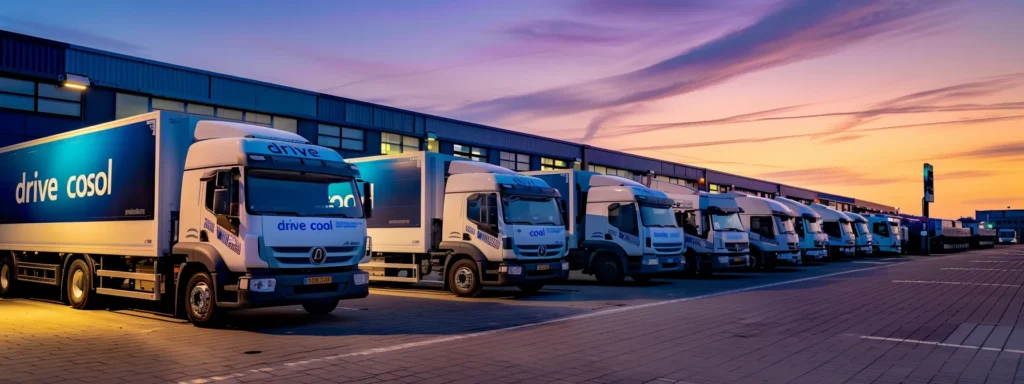
The typical rental process for chiller trucks in Dubai involves understanding average rental fees based on different durations, which vary widely. Rental agreements play a critical role in overall expenses, with companies needing to assess what each agreement includes. Evaluating rental companies and their specific offerings, alongside potential additional fees, can help businesses optimize their rental strategy. A comparison of short-term and long-term rental options further informs decision-making, ensuring the right fit for operational needs.
Understand the Typical Rental Process for Chiller Trucks
The rental process for chiller trucks in Dubai typically begins with a thorough assessment of a business’s specific logistics needs. Companies must identify the required truck size, temperature control features, and duration of the rental to ensure an appropriate match for their operations. This initial planning stage is crucial, as it allows businesses to avoid overpaying for unnecessary space or capabilities.
Once needs are established, businesses can approach reputable rental providers in Dubai. It’s advisable to review rental agreements closely, paying attention to included services, maintenance responsibilities, and any potential additional fees. Understanding these elements will help businesses manage their rental expenses effectively and ensure they remain compliant with regional regulations regarding temperature-sensitive goods.
After selecting a provider and finalizing an agreement, companies should schedule vehicle pickup or delivery. During this phase, a thorough inspection of the chiller truck is recommended to ensure it meets quality standards. By addressing any concerns upfront, businesses can avoid inconveniences during transportation, ensuring that their perishable goods are delivered in optimal condition throughout their supply chain operations.
Explore the Average Rental Fees for Different Durations
Rental fees for chiller trucks in Dubai vary significantly based on the duration of the rental agreement. Typically, short-term rentals, which may last from a day to a week, are priced higher on a per-day basis compared to long-term rentals that span months or even years. Businesses needing flexibility for limited timeframes often encounter elevated costs but benefit from the convenience of immediate access to temperature-controlled transportation.
In contrast, opting for longer rental periods allows businesses to secure better overall rates. Most rental companies provide discounts for extended agreements, making this a cost-effective choice for companies with consistent logistics demands. By committing to longer durations, organizations can minimize the daily rental fees while ensuring continuous access to essential chiller and freezer truck services, thus simplifying their cold chain logistics.
Furthermore, understanding seasonal demand can influence rental costs in Dubai. During peak periods such as summer months or holiday seasons, rental prices may increase due to heightened needs for refrigerated transport. Businesses that anticipate these cycles and book their chiller trucks in advance can avoid inflated fees while ensuring they have reliable vehicles on hand to maintain the quality of perishable goods throughout their operations.
Assess the Impact of Rental Agreements on Costs
When evaluating rental agreements for chiller trucks in Dubai, companies must understand the specific terms that can affect overall costs. Factors such as upfront fees, maintenance responsibilities, and insurance coverage may vary greatly among providers. A comprehensive review of these elements ensures businesses select an agreement that aligns with their operational needs and budget while maintaining the quality of temperature-sensitive goods during transport.
Additionally, the duration of the rental often influences price, with short-term agreements generally incurring higher daily costs compared to long-term contracts. Businesses with predictable logistics cycles may benefit from longer rentals that can offer discount rates, effectively reducing their overall spending on chiller truck services. This approach not only lowers expenses but also guarantees reliable access to the refrigerated vehicles necessary for maintaining proper product temperatures.
Furthermore, businesses should account for any hidden costs associated with rental agreements, such as potential fees for exceeding mileage limits or late returns. Being aware of these charges can help companies avoid unexpected expenses that may arise throughout the rental period. By negotiating terms and understanding each component of an agreement, businesses can make informed decisions that align with their financial goals while ensuring efficient cold chain operations in Dubai.
Review Rental Companies and Their Offerings in Dubai
In Dubai, various rental companies offer chiller and freezer trucks tailored to meet the specific needs of businesses in the food and beverage sector. Many providers focus on ensuring their fleets comply with local regulations, which is essential for maintaining the quality of temperature-sensitive goods during transit. Businesses can benefit by choosing a company that not only meets operational demands but also prioritizes reliability and service quality.
Prominent rental firms often provide various options, ranging from small refrigerated vans to larger chiller trucks, catering to different capacities and temperature control requirements. For instance, companies that require consistent transportation of perishables, such as meat or produce, will find it advantageous to partner with firms that offer vehicles equipped with advanced cooling technologies. Such features are vital for ensuring that products remain within safe temperature ranges throughout their journey.
Evaluating rental contracts from multiple providers can also reveal significant differences in pricing and services. Understanding what each agreement entails, such as maintenance coverage and insurance options, can help businesses make informed choices. Companies that consider the total cost of ownership, including potential maintenance expenses, will be better positioned to select a rental that aligns with their financial strategies and logistical needs.
Examine Additional Fees Related to Chiller Truck Rentals
When renting chiller trucks in Dubai, businesses should be aware of potential additional fees that can impact overall expenses. Common charges may include those for exceeding mileage limits, late returns, and specific cleaning requirements that must be met upon vehicle return. Understanding these factors is essential for companies to avoid unexpected financial burdens and to manage their logistics budget effectively.
Insurance premiums are another crucial aspect that can add to rental costs. Depending on the cargo transported, businesses might need to opt for comprehensive coverage, especially when dealing with valuable perishable items. Companies should carefully evaluate the insurance options presented in the rental agreement to ensure they select the best coverage that aligns with their operational needs while avoiding excessive costs.
Additionally, maintenance and service fees can vary among rental companies. Some providers may offer inclusive packages that cover routine maintenance during the rental period, while others may charge separately for such services. Assessing the terms of maintenance can help businesses make informed choices, ensuring their trucks remain in optimal condition without incurring surprise charges that could disrupt their cold chain operations.
Compare Short-Term Versus Long-Term Rental Options
When evaluating chiller truck rentals in Dubai, businesses often weigh the options between short-term and long-term agreements. Short-term rentals, ideal for infrequent or seasonal needs, typically come with higher daily costs. This approach suits companies that require flexibility, such as those managing fluctuating demand during peak seasons or special events, allowing them to avoid a significant upfront investment.
Conversely, long-term rentals can lead to cost savings for businesses with consistent logistics requirements. By committing to extended rental periods, companies can benefit from reduced daily rates and improved overall budget management. This option is advantageous for those engaged in ongoing cold chain logistics, as it provides reliability without the hefty costs associated with vehicle ownership.
Additionally, companies should examine the additional services included in rental agreements. Long-term rentals often come with comprehensive maintenance packages, which can lower unexpected expenses tied to upkeep. By ensuring the chiller and freezer trucks remain in optimal condition throughout the rental duration, businesses can prioritize the smooth transport of temperature-sensitive goods and protect their overall operational efficiency.
Evaluate Buying Versus Renting Chiller Trucks in Dubai

Businesses must carefully weigh the pros and cons of buying chiller trucks outright versus renting to determine the best option for their needs. This section will analyze the financial implications of each choice, discuss financing options for purchasing, and review aspects such as depreciation and resale value. Additionally, cash flow considerations and the flexibility offered by rental agreements will be assessed, providing valuable insights for organizations navigating their cold chain logistics in Dubai.
List Pros and Cons of Buying Chiller Trucks Outright
Investing in chiller trucks outright can provide businesses with long-term cost savings, especially for those with consistent logistics needs. Owning a vehicle eliminates recurring rental fees, allowing companies to allocate their budgets toward maintenance and operational costs instead. This approach is particularly advantageous for firms that frequently transport perishables, such as food and pharmaceuticals, as it allows for customized preservation methods suited to specific cargo types.
On the downside, purchasing chiller trucks involves significant upfront expenses, which may not be feasible for all businesses. Companies must consider potential financial strain, especially if they experience fluctuations in demand. Additionally, ownership entails ongoing maintenance commitments, which can add to overall expenses and necessitate regular inspections to ensure compliance with safety and health regulations.
Furthermore, chiller trucks depreciate in value over time, which can be a concern for businesses looking to maintain their assets’ worth. This depreciation can impact resale value when companies decide to upgrade their fleets. Therefore, it is crucial for businesses to evaluate their long-term logistics strategy, assessing whether the benefits of ownership outweigh the initial investment and ongoing maintenance needs in the competitive Dubai market.
Analyze the Financial Implications of Purchasing Versus Renting
The financial ramifications of choosing between purchasing and renting chiller trucks in Dubai significantly impact budget management. Businesses that opt to buy can experience long-term savings by eliminating recurring rental fees, but they must also consider the substantial initial outlay for acquisition. This upfront expenditure can strain cash flow, especially for companies that face fluctuations in demand or are just starting out.
Conversely, renting chiller trucks allows companies to maintain flexibility without engaging in large capital investments. This temporary solution can be advantageous during peak seasons or for companies testing their logistics models before committing to ownership. However, businesses should be aware that while rental fees may appear manageable in the short term, these costs can accumulate over time and potentially overshadow the financial benefits of ownership, particularly if there is a steady demand for refrigerated transport.
Additionally, maintenance costs vary significantly based on ownership. Companies that purchase chiller trucks must account for routine service, repairs, and potential downtime, all of which can add to operational expenses. Rentals often include maintenance agreements, simplifying budgeting and operational planning. Therefore, businesses need to evaluate their long-term logistics strategy carefully, ensuring the chosen approach aligns with their operational goals and financial realities.
Review Financing Options for Buying Chiller Trucks
When considering the purchase of chiller trucks, businesses in Dubai can explore various financing options that align with their financial capabilities and logistics strategies. One common approach is obtaining a loan from a financial institution, which allows companies to spread the cost of the vehicle over time while maintaining cash flow for operational expenses. This method is advantageous for firms that want ownership without the burden of a large upfront payment.
Leasing is another popular option, providing businesses the chance to enjoy the features of a chiller truck without full ownership. With leasing agreements, companies often benefit from lower monthly payments compared to traditional loans. This flexibility allows businesses to adapt their logistics operations quickly without a significant initial investment, making it an appealing choice for those with fluctuating demands.
Furthermore, manufacturers and dealerships frequently offer tailored financing solutions, including promotional deals or flexible payment plans. These arrangements can make acquiring a chiller truck more accessible, reducing financial barriers for new businesses or those looking to expand their fleet. Companies should thoroughly review these options to find the best financing strategy that meets their long-term logistics objectives while ensuring they can manage ongoing maintenance costs effectively.
Discuss Depreciation and Resale Value for Chiller Trucks
Depreciation significantly impacts the financial landscape for businesses considering the purchase of chiller trucks in Dubai. As these vehicles age, their market value diminishes, which can affect resale when companies decide to upgrade their fleets. For instance, if a business invests in a chiller truck today, they can expect a substantial drop in its value over five years, typically ranging from 40% to 60%, depending on usage and maintenance.
Understanding resale value is crucial for companies that prioritize financial planning and long-term sustainability. When businesses assess the potential value of their chiller trucks, they should factor in key elements such as maintenance history, overall condition, and the demand for used refrigerated vehicles in the market. A well-maintained truck not only retains a higher resale value but also assures buyers of its reliability, thus contributing to a stronger return on investment.
In contrast, renting eliminates the concerns related to depreciation and resale value, allowing businesses to focus on their operations without the uncertainty of future asset values. Organizations can allocate funds typically spent on depreciating assets toward operational efficiency and maintenance costs, which are critical to keeping temperature-sensitive goods safe. This flexibility can be especially beneficial for companies experiencing fluctuations in demand, making renting a more pragmatic choice during uncertain market conditions.
Assess Cash Flow Considerations for Businesses
Cash flow considerations play a significant role in the decision to buy or rent chiller trucks for businesses in Dubai. When purchasing, companies face substantial initial expenses that can strain their financial resources. This upfront investment requires businesses to evaluate their ability to manage these costs while ensuring ongoing operational efficiency.
On the other hand, renting offers more flexible cash flow management since businesses can avoid the hefty down payment associated with buying. Rental agreements often allow companies to allocate funds toward other operational expenses, which can be especially critical during peak seasons when demand for refrigerated transport spikes. This flexibility helps organizations prioritize immediate logistics needs without compromising financial stability.
Moreover, understanding the variable nature of rental fees versus fixed ownership costs is crucial for businesses. While renting may incur higher costs over time if utilized frequently, it presents a way for companies to adapt their logistics according to fluctuating market conditions. By assessing these cash flow implications, businesses can make informed decisions that align with their operational goals and financial health while ensuring they maintain the quality of temperature-sensitive goods during transport.
Evaluate the Flexibility of Rental Agreements Versus Ownership
Rental agreements for chiller and freezer trucks provide significant flexibility for businesses in Dubai. Companies can easily adjust their fleet size based on seasonal demands or fluctuating logistics needs without the burden of long-term commitments. This adaptability is particularly advantageous during peak periods, such as summer months or holiday seasons, when the demand for refrigerated transport typically rises.
In contrast, ownership comes with fixed responsibilities and financial obligations, which may limit a company’s ability to pivot quickly. Businesses that choose to own chiller trucks must consider ongoing maintenance, compliance, and potential downtime, all of which affect operational efficiency. For organizations focused on agility and responsiveness to market changes, rental arrangements present a more feasible solution, allowing them to allocate resources effectively while maintaining their logistics operations.
Another critical aspect of rental agreements is the typically inclusive maintenance coverage, which minimizes unexpected repair costs. This arrangement enables companies to rely on the truck’s performance without the hassle of managing upkeep themselves. By renting, businesses can focus on their core activities, knowing their temperature-sensitive goods are being transported efficiently and securely, thereby mitigating risks associated with spoilage and compliance infringements.
Investigate Chiller Truck Maintenance and Associated Costs
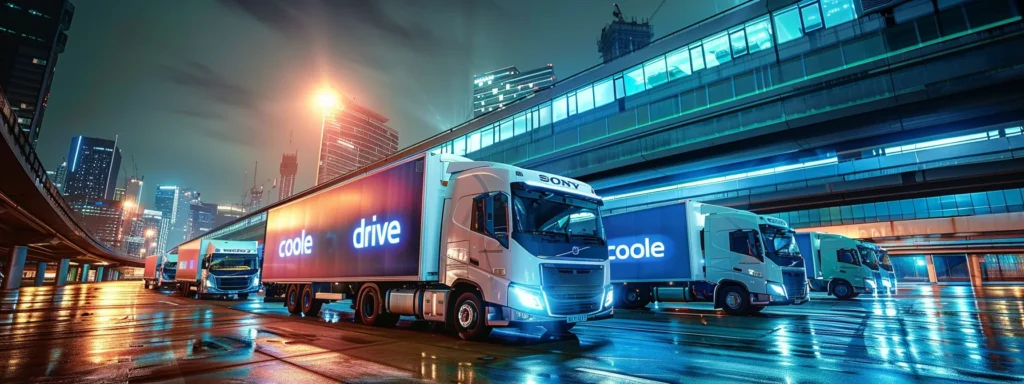
Regular maintenance is crucial for chiller trucks, impacting their reliability and performance. Understanding routine requirements, exploring common repair costs, and learning about scheduled inspections helps businesses plan effectively. Additionally, assessing how maintenance influences long-term expenses and evaluating warranty options can minimize repair costs. These insights ensure operational efficiency and longevity for refrigerated vehicles.
Understand Regular Maintenance Requirements for Chiller Trucks
Regular maintenance is essential for chiller trucks to ensure optimal performance and reliability during the transport of temperature-sensitive goods in Dubai’s demanding climate. Key maintenance tasks include checking and calibrating refrigeration systems to maintain precise temperature control, which is crucial for preventing spoilage of perishables. Companies must prioritize routine inspections to identify potential issues before they escalate into costly repairs or product losses.
Another critical aspect of maintenance involves monitoring the mechanical components of chiller trucks, such as the engine and tires. Consistent maintenance helps in maintaining fuel efficiency, which can greatly impact overall operational costs. For instance, worn tires can lead to increased fuel consumption and affect delivery timelines, emphasizing the need for regular tire checks and replacements as part of a comprehensive maintenance strategy.
Furthermore, businesses should keep track of servicing schedules and adhere to the manufacturer’s recommendations for maintenance intervals. This proactive approach ensures compliance with safety regulations and enhances the longevity of refrigerated vehicles. By investing in regular maintenance, companies not only safeguard their operational efficiency but also uphold their reputation for delivering high-quality products consistently in the competitive Dubai market.
Explore Common Repair Costs for Refrigerated Vehicles
When managing refrigerated vehicles in Dubai, understanding common repair costs is crucial for businesses relying on chiller and freezer trucks. Repairs can range from minor issues, such as replacing worn-out seals on cooling units, which generally costs between AED 800 to AED 1,500, to more significant repairs involving the compressor, which can escalate to hundreds of thousands of dirhams if neglected. Addressing these repairs promptly enhances vehicle reliability and prevents more severe equipment failures that could disrupt the cold chain.
Regular wear and tear can lead to various issues in chiller trucks, making proactive maintenance essential. Refrigeration systems may require periodic servicing, with costs typically averaging AED 1,000 to AED 2,500 for a complete system check and servicing. Timely maintenance not only increases the lifespan of the truck but also ensures that temperature-sensitive goods remain uncompromised during transport, reducing potential losses for companies in the food and pharmaceutical sectors.
Additionally, tire maintenance and brake systems play a significant role in the overall safety and efficiency of refrigerated transport. Businesses should expect to allocate around AED 400 to AED 800 for routine tire replacements. Overdue tire maintenance can lead to increased fuel consumption and delayed deliveries, impacting customer satisfaction. Thus, budgeting for these repairs is crucial to maintaining operational efficiency and ensuring compliance with safety standards in Dubai’s logistics landscape.
Learn About Scheduled Inspections and Their Costs
Scheduled inspections for chiller and freezer trucks in Dubai are crucial for ensuring that refrigeration systems operate efficiently and reliably. These inspections typically include checking the refrigeration unit’s functionality, assessing temperature controls, and conducting visual inspections of the truck’s overall condition. By adhering to a consistent inspection schedule, businesses can prevent potential breakdowns and ensure compliance with health and safety regulations, which are vital in the food and pharmaceutical sectors.
The costs associated with scheduled inspections can vary based on the service provider and the specific services included in the inspection. On average, businesses can expect to pay between AED 1,000 to AED 2,500 for a thorough inspection. Investing in regular inspections reduces the likelihood of costly emergency repairs and helps maintain the integrity of temperature-sensitive goods during transit, thereby supporting customer satisfaction and operational efficiency.
Companies should keep detailed records of their scheduled inspections to monitor maintenance history and expenses effectively. These records not only aid in compliance with regulatory standards but can also improve the resale value of the vehicles. For businesses looking to optimize their operations, developing a proactive maintenance strategy that includes regular inspections will ultimately safeguard their cold chain logistics and enhance their market reputation in Dubai.
Review the Importance of Upkeep on Operational Efficiency
Regular maintenance of chiller and freezer trucks is vital for ensuring operational efficiency in businesses that transport temperature-sensitive goods. Neglecting routine upkeep can lead to unexpected breakdowns, resulting in costly delays and potential spoilage of perishables. For companies operating in Dubai’s demanding climate, timely maintenance not only preserves the integrity of their products but also enhances reliability in their logistics operations.
A well-maintained truck operates more efficiently, leading to reduced fuel consumption and lower operational costs. Businesses that invest in regular inspections and servicing often find that their vehicles perform better, which directly correlates with successful deliveries. For instance, a chiller truck that receives optimal attention is less likely to malfunction en route, allowing companies to meet tight deadlines and maintain customer satisfaction.
Furthermore, adherence to maintenance schedules plays a significant role in regulatory compliance, especially within the food and pharmaceutical sectors. Ensuring that chiller trucks meet health and safety standards protects businesses from fines and reputational damage. By prioritizing regular upkeep, organizations can streamline their cold chain logistics while safeguarding the quality of their temperature-sensitive goods throughout transit.
Assess How Maintenance Affects Long-Term Truck Costs
Regular maintenance of chiller and freezer trucks significantly influences long-term operational costs, particularly in a dynamic environment like Dubai. Proper upkeep not only ensures that refrigeration systems operate at optimal efficacy but also minimizes the risk of costly repairs. Without consistent maintenance, minor issues can evolve into major problems, resulting in downtime and potential loss of perishable goods, which directly impacts a company’s bottom line.
One crucial aspect of maintenance is the care of the refrigeration units and other mechanical components. Scheduled services, including refrigerant checks and system calibrations, lead to improved fuel efficiency, which can substantially reduce overall fuel costs over time. For instance, a well-maintained truck capable of efficient temperature control will consume less fuel, significantly lowering long-term expenses and enhancing profitability.
Additionally, investing in maintenance can enhance the resale value of chiller trucks when businesses decide to upgrade their fleets. A vehicle with a documented maintenance history illustrates its reliability and operational condition, appealing to potential buyers. Therefore, organizations that prioritize regular upkeep are likely to secure better returns on their investments, supporting both current operations and future growth in the competitive Dubai market.
Evaluate Warranty Options for Minimizing Repair Expenses
Choosing the right warranty for chiller and freezer trucks can significantly mitigate repair expenses. A comprehensive warranty package usually covers essential components such as refrigeration units, engines, and drivetrain elements, providing peace of mind for businesses in Dubai that rely on their vehicles for transporting temperature-sensitive goods. By selecting a warranty that aligns with specific operational needs, companies can protect themselves against unexpected repair costs and ensure uninterrupted service.
Some manufacturers and rental companies offer varying warranty options that include extended coverage for parts and labor. These plans enable businesses to minimize their financial exposure to major repairs, as the costs are often absorbed under the warranty umbrella. By investing in such agreements, operators can avoid significant out-of-pocket expenses related to routine mechanical failures, maintaining their service efficiency while safeguarding their budgets.
Additionally, businesses should carefully review the terms and conditions of any warranty agreements. Understanding what is covered and the claims process is crucial to maximize the benefits of these warranties. Focusing on warranties that emphasize regular maintenance can lead to further cost savings, as they encourage operators to keep their chiller trucks in optimal condition and can reduce potential repair incidents, thus enhancing overall operational efficiency in Dubai’s logistics market.
Examine Regulations Affecting Chiller Truck Costs in Dubai
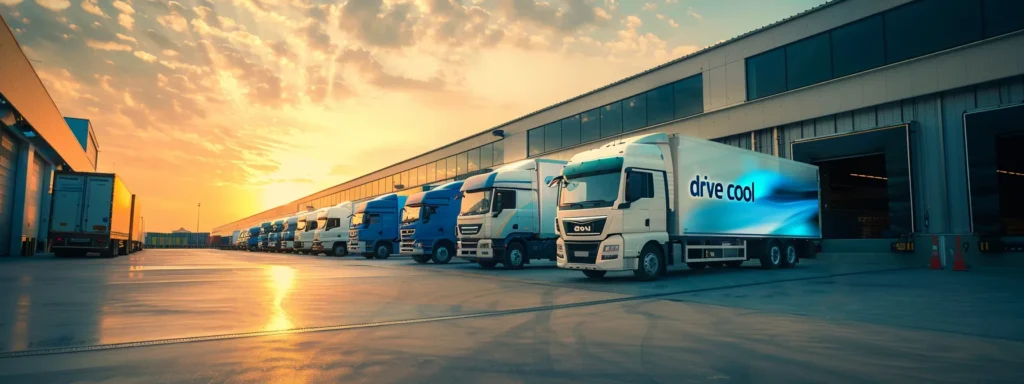
Local regulations significantly impact the operational costs of chiller trucks in Dubai. This includes adherence to licensing requirements for drivers, health and safety standards for refrigerated transport, and environmental regulations that govern fuel usage. Understanding the compliance costs associated with these regulations, along with the role of inspections, is essential for businesses aiming to maintain efficient operations while minimizing expenses.
Identify Local Regulations Impacting Chiller Truck Operations
Local regulations in Dubai significantly impact the operations of chiller trucks, particularly concerning licensing and driver qualifications. Companies must ensure that their drivers have the necessary certifications and comply with the standards set by the Roads and Transport Authority (RTA). Adhering to these regulations not only facilitates compliance but also enhances the overall professionalism and reliability of transport services.
Additionally, health and safety standards play a crucial role in governing refrigerated transport in Dubai. Chiller trucks must meet stringent cleanliness and operational requirements to ensure the safe delivery of temperature-sensitive goods. Failure to comply can lead to severe consequences, including fines and damage to a company’s reputation, making it imperative for businesses to stay informed about the latest regulations.
Environmental regulations regarding fuel usage and emissions also affect the operational costs associated with chiller trucks. Companies are encouraged to adopt eco-friendly practices in their logistics operations, such as using energy-efficient vehicles and refrigerants. By aligning with these regulations, businesses not only mitigate potential financial penalties but also enhance their sustainability efforts in the competitive Dubai market.
Explore Licensing Requirements for Chiller Truck Drivers
In Dubai, obtaining the proper licensing for chiller truck drivers is essential for compliance and operational integrity. All drivers must hold a valid commercial driving license that permits the operation of heavy vehicles. This certification ensures that they possess the necessary skills and knowledge to handle the specific challenges associated with driving refrigerated trucks, such as managing temperature-sensitive cargo.
Moreover, chiller truck drivers must be familiar with compliance standards set by the Roads and Transport Authority (RTA). These regulations often mandate additional training related to food safety, handling of perishable goods, and proper maintenance protocols. By investing in training, drivers can contribute to minimizing spoilage, ensuring that temperature-sensitive items are delivered safely and efficiently.
Maintaining compliance with these licensing requirements not only fosters operational effectiveness but also enhances a company’s reputation in the food safety sector. Businesses that prioritize hiring licensed drivers demonstrate their commitment to quality service and regulatory adherence. This investment in driver qualifications ultimately supports smoother logistics operations while safeguarding valuable resources in preserving temperature-sensitive goods during transport.
Review Health and Safety Standards for Refrigerated Transport
Health and safety standards for refrigerated transport in Dubai are critical for maintaining the integrity of temperature-sensitive goods. These regulations require businesses to adhere to strict cleanliness protocols and operational practices to ensure that chiller and freezer trucks remain compliant during transportation. Regular audits may be conducted by local authorities, emphasizing the importance of meeting these requirements to avoid potential fines and protect brand reputation.
To uphold health and safety standards, companies must implement rigorous training programs for their employees, particularly drivers and handlers of perishable items. This training often includes proper handling techniques, emergency procedures, and knowledge of temperature monitoring systems. By investing in such training, businesses can significantly reduce the risk of spoilage and ensure the safe delivery of their products, thus enhancing overall operational efficiency.
Constant compliance with health and safety regulations not only protects the transported goods but also instills confidence in clients and partners. Businesses that demonstrate their commitment to following stringent guidelines position themselves favorably in the marketplace. Adopting a proactive approach towards health and safety can lead to long-term cost savings by preventing costly fines, reducing spoilage, and maintaining customer satisfaction in Dubai’s competitive food industry.
Discuss Environmental Regulations Affecting Fuel Usage
Environmental regulations significantly influence fuel usage for chiller and freezer trucks operating in Dubai. Stricter emissions standards require companies to adopt cleaner technologies and fuels, thereby reducing their environmental impact. By adhering to these regulations, businesses not only comply with local laws but also enhance their market reputation as responsible operators in the cold chain logistics sector.
The introduction of eco-friendly refrigerants and engine technologies has helped many logistics companies in Dubai lower their fuel consumption. For instance, businesses utilizing energy-efficient chiller trucks can experience substantial savings on fuel, which translates into lower overall operational costs. This proactive approach not only benefits the environment but also improves the bottom line as companies seek to optimize their cold chain logistics.
Additionally, fuel usage regulations encourage businesses to plan their operations with sustainability in mind. By implementing strategies such as route optimization and load management, companies can further minimize their fuel consumption while ensuring the safe transport of temperature-sensitive goods. This alignment with environmental regulations not only meets compliance requirements but also fosters long-term savings and operational efficiency for businesses in Dubai’s competitive food industry.
Assess the Impact of Compliance Costs on Business Operations
Compliance costs in Dubai significantly influence the operational strategies of businesses that rely on chiller and freezer trucks. These expenses include adhering to local regulations regarding health and safety standards, as well as licensing requirements for drivers. Companies can incur fines and operational disruptions if they fail to meet these regulations, making it essential for them to integrate compliance into their budgeting and logistics planning.
Investing in compliance not only helps businesses avoid penalties but also enhances their reputation in the competitive market. For instance, companies that prioritize hiring licensed drivers and providing them with proper training can reduce the risk of spoilage during transportation. Ensuring that all operations align with regulatory standards fosters consumer trust and supports long-term business growth.
Furthermore, understanding the impact of compliance costs allows businesses to make informed decisions regarding fleet maintenance and operational efficiencies. By proactively maintaining their chiller trucks to meet health and safety standards, companies can enhance vehicle reliability and reduce the frequency of costly repairs. This strategic approach leads to improved overall performance and ensures the consistent quality of temperature-sensitive goods throughout the supply chain.
Understand the Role of Inspections on Operational Costs
Inspections play a vital role in maintaining the operational efficiency of chiller and freezer trucks, particularly in the strict regulatory environment of Dubai. Regularly scheduled inspections ensure that refrigeration systems are functioning correctly, which is crucial for meeting health and safety standards while transporting perishable goods. By identifying potential issues early, businesses can avoid costly repairs and prevent spoilage, thereby preserving the quality of their products and reputation in the market.
Moreover, compliance with inspection requirements typically minimizes the risk of incurring fines or operational disruptions. In Dubai, failure to adhere to regulatory standards can result in significant financial penalties, impacting overall operational costs. By staying on top of inspections, companies can create a proactive maintenance strategy that not only enhances vehicle reliability but also aligns with local regulations, ultimately safeguarding their operations.
In addition to regulatory compliance, regular inspections can lead to longer vehicle lifespans, translating to better long-term financial outcomes for businesses. When chiller trucks receive consistent oversight, they are more likely to operate efficiently and require fewer emergency repairs, which can disrupt operations and escalate costs. Thus, companies that prioritize inspections not only ensure compliance but also enhance their budgeting strategies, enabling them to allocate resources more effectively while maintaining optimal performance throughout their logistics processes.
Conclusion
Understanding maintenance costs for chiller and freezer trucks in Dubai is crucial for businesses reliant on temperature-sensitive goods. Regular upkeep not only enhances vehicle reliability and efficiency but also minimizes the risk of spoilage and operational disruptions. By investing in consistent maintenance and adhering to scheduled inspections, companies can protect their products’ integrity and ultimately improve their bottom line. Prioritizing these practices not only ensures compliance with industry standards but also reinforces a strong reputation in the competitive market.

